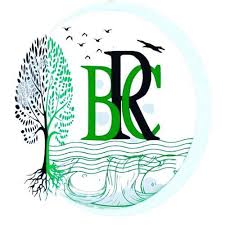Biodiversity Rescue Club, an NGO, has begun the planting of 3,000 seedlings of mangrove species in some degraded Calabar creeks and beaches in order to bolster the production of seafood in the state and safeguard against flood.
Godwin Ogbiji, focal person of BRC, said they are particularly focusing on the Esierebom beach, which was a major habitat for fish, oysters, lobsters, crayfish, snails, and shrimp, as well as other marine animals in the Calabar River before the mangroves were cut down by locals for commercial purposes.
He said they are working on a project tagged ‘Restoration of the Mangroves in Ikot Ewa Effiom Esierebom Community of Calabar South Local Government Area, Cross River State’.
They had a 1-day workshop in Calabar with the theme, ‘The Effective Restoration and Sustainability of the Cross River Mangroves’, aimed at drawing attention to the massive disappearance of the mangroves and attendant effects on food security, man and nature.
- FG launches ‘Technical Working Groups’ on food, feed safety
- Fertiliser scarcity heightens food crisis concerns
Ogbiji said, “Our survey conducted within Calabar confirmed worrying problems that accompany the loss of mangroves. Some of these include the loss of sea species and animals resident in the wetlands, among others. These losses as a result of man’s activities have led to sharp shortages of seafood.
“The replanting of the mangroves would attract new and economically important marine species like fish, which would in turn boost fisheries to support local livelihoods and food security.”
Ogbiji said the mangrove planting is coordinated by Anna Obi Akpe, a Restoration Steward of the Global Landscape Forum through its Restoration Steward Programme and is hosted by BRC to which she belongs.
According to them, threats against aquatic species have already impacted market forces in the country and frowned upon the killing of crocodiles and other such animals.
They confirmed that locals residing near the Ikot Ewa Effiom Esierebom community beach in Calabar South LGA and other coastal beaches, for instance, now resort to felling the mangrove trees for commercial purposes, warning that the act was very dangerous.
“This act is criminal and has not only threatened but displaced aquatic animals and medicinal plants, thereby posing dangers to residents.”
The group cautioned against further devastation, saying it makes surrounding communities vulnerable to flooding and erosion, apart from food security.
Plant ecologist and biodiversity informaticist, Dr Patrick Akwaji of the Department of Plants, University of Calabar as well as Dr Paul Oko, Chairman of the Board of Trustees of BRC spoke on the importance of restoration and biodiversity conservation.
They corroborated that the continual decline in the production of seafood is a result of the loss of mangroves.
Both charged Nigerians to be committed to the restoration of mangrove forests and to responsibly use their resources in order to ensure food security and climate change.
They maintained that mangroves are important for man’s livelihoods and existence, and warned against the dire consequences of the loss of ecosystems.

 Join Daily Trust WhatsApp Community For Quick Access To News and Happenings Around You.
Join Daily Trust WhatsApp Community For Quick Access To News and Happenings Around You.


